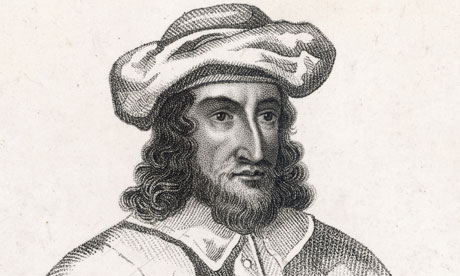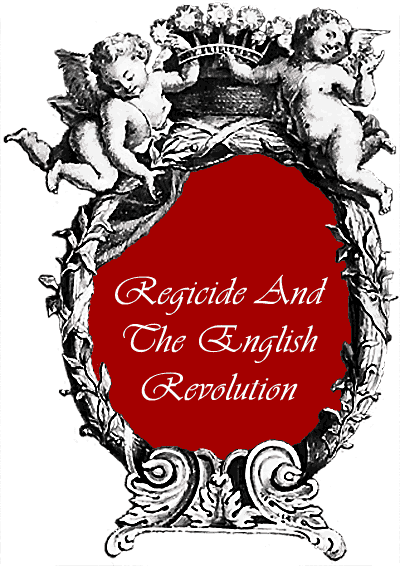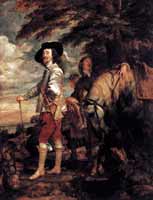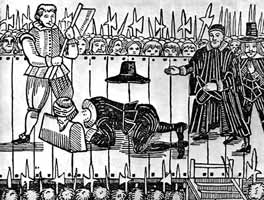杰弗裡·羅伯遜:正義與革命
Robertson, Geoffrey (23 April 2011). "My hero: John Cooke". The Guardian.
Audio from a talk on John Cooke by Geoffrey Robertson for Bristol Radical History Group
My hero: John Cooke
As
Cromwell's solicitor general, he drafted the Act which abolished the
monarchy. Then, for good measure, he abolished the House of Lords as
'useless and dangerous'

John Cooke, from an engraving by R Cooper. Photograph: Mary Evans Picture Library/Alamy
http://en.wikipedia.org/wiki/John_Cook_%28regicide%29
My hero is a man who did his best and gave his life to stop
England becoming the kind of nation it will be over the next week. John
Cooke prosecuted Charles I. As Cromwell's solicitor general, he drafted
the Act which abolished the monarchy ("the office of a king in this
country is unnecessary, burdensome and dangerous to the liberty, safety
and public interest of the people"). Then, for good measure, he
abolished the House of Lords as "useless and dangerous". For these
heroic acts of republican faith, he was disembowelled at the
restoration. He was the son of a Leicestershire farmer. He defended
"Freeborn John" Lilburne the Leveller, in a case that established the
right to silence. Cooke was the visionary who first recognised poverty
as a cause of crime, and was the first to suggest a national health
service (in 1647) and abolition of imprisonment for debt (two centuries
before Dickens). He proposed that barristers' fees should be controlled
and they should do 10% of their work pro bono.
When all the great lawyers fled from the Temple for fear of treason if they prosecuted the king, Cooke accepted the brief and mounted what became in effect the first war-crimes trial of a head of state. The "great lawyers" soon returned to frustrate Cooke's reforms, so he accepted Cromwell's offer to become chief justice of Ireland, where he speeded up proceedings and decided cases in favour of tenants rather than landlords. Come the restoration, however, he was arrested as a regicide, subjected to an outrageously rigged trial, and then hanged, drawn and quartered at Charing Cross.
Cooke was a man of great courage and republican principle. In words worth remembering this week, he wrote to his wife from the Tower shortly before his execution: "We fought for the public good and would have enfranchised the people and secured the welfare of the whole groaning creation, if the nation had not delighted more in servitude than freedom."
When all the great lawyers fled from the Temple for fear of treason if they prosecuted the king, Cooke accepted the brief and mounted what became in effect the first war-crimes trial of a head of state. The "great lawyers" soon returned to frustrate Cooke's reforms, so he accepted Cromwell's offer to become chief justice of Ireland, where he speeded up proceedings and decided cases in favour of tenants rather than landlords. Come the restoration, however, he was arrested as a regicide, subjected to an outrageously rigged trial, and then hanged, drawn and quartered at Charing Cross.
Cooke was a man of great courage and republican principle. In words worth remembering this week, he wrote to his wife from the Tower shortly before his execution: "We fought for the public good and would have enfranchised the people and secured the welfare of the whole groaning creation, if the nation had not delighted more in servitude than freedom."
Bristol Radical History Week 2008
Off With Their Heads
Assassins, Plots & Regicide

Venue: The Cube, Dove St. South off King Square.
Time: 7:30pm
Price: £3/4
The Tyrannicide Brief
Speaker: Geoffrey RobertsonRenowned human rights lawyer Geoffrey Robertson QC examines the first trial of a head of state - Charles I, and how this groundbreaking moment in history opened the way for the trials of Augusto Pinochet, Slobodan Milosevic, and Saddam Hussein.
Robertson became a barrister in 1973 and a QC in 1988. His became well known acting for the defence in the celebrated English criminal trials of Oz, Gay News, the 'ABC Trial', The Romans in Britain (the prosecution brought by Mary Whitehouse), the Brighton bombing and Matrix Churchill. Robertson was also threatened by terrorists for representing Salman Rushdie. He has appeared in civil liberties cases before the European Court of Human Rights and in other courts across the world. He sits as an appeal judge at the UN Special Court for Sierra Leone. His latest book, The Tyrannicide Brief, details the story of John Cooke, who prosecuted King Charles I of England in the treason trial that led to his execution.


沒有留言:
張貼留言